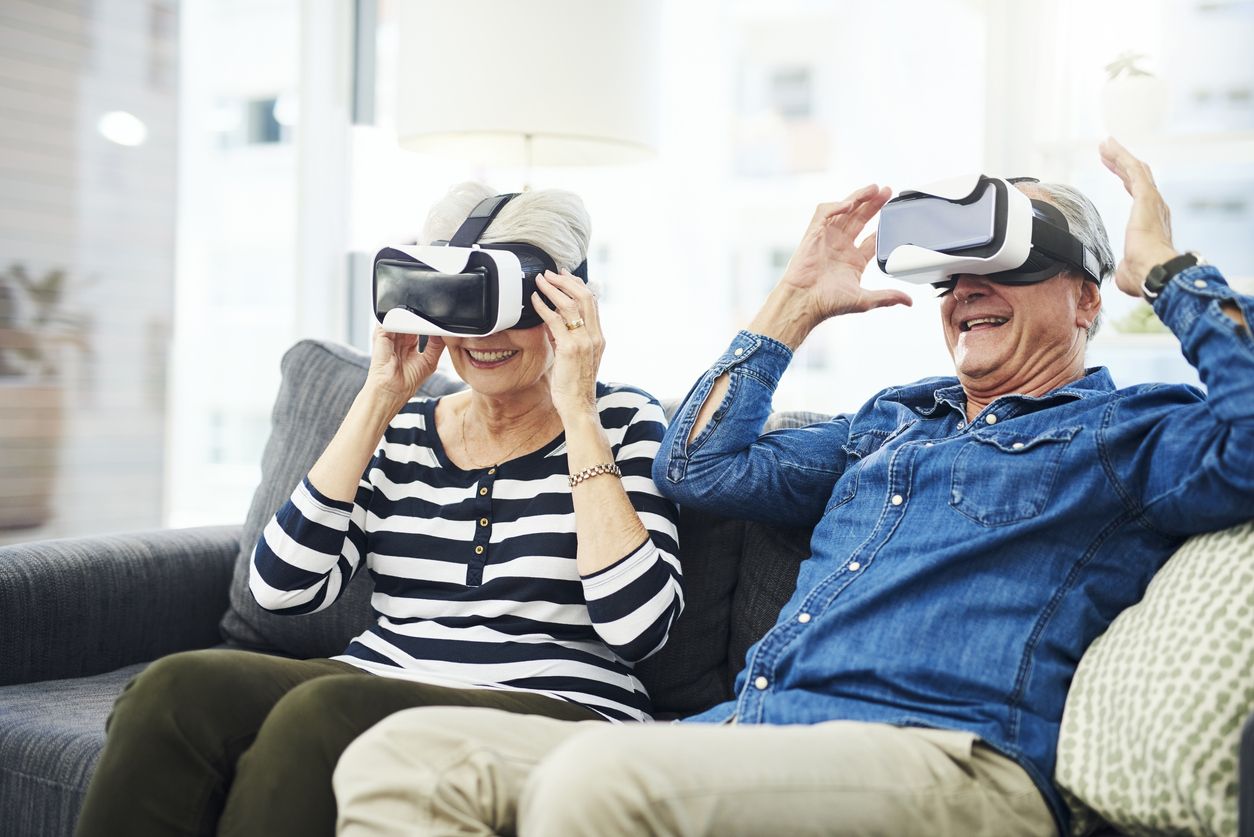
Mind and Body: The Growing Role of Virtual Reality in Assisted Living
Seniors in assisted living often feel depressed because of isolation and lack of mobility. Those who traveled extensively when they were younger can feel particularly trapped in one place. Virtual reality (VR) promises to help with that by allowing seniors to travel, engage in interactive fitness, communicate with others, and meditate. Can virtual reality in assisted living help people thrive? What are the benefits of a virtual reality program?
How Can VR Help Older Adults?
Studies have shown that VR technology reduces social isolation, improves memory and balance, and can support rehabilitation. For example, if somebody needs to walk for rehabilitation, virtual reality in assisted living can make rehabilitation sessions more interesting and improve participation.
Currently, not everyone benefits from VR. More research is underway on how conditions like vision loss and hearing loss might impact somebody’s ability to use and benefit from VR. However, it’s clear that most older adults, especially in institutional environments, can benefit from VR.
What Can Older Adults Do in Virtual Reality?
Virtual reality can support a variety of activities and therapies. Virtual reality can also be used in staff training. These programs are not cheap, especially as staff must be trained as facilitators, so it’s important to understand all the possible activities and maximize the “ROI” of virtual reality in assisted living.
Here are some things that a virtual reality program might offer:
- Games: VR games are becoming increasingly popular. Facilities can offer age-appropriate games that residents can play on their own, with other residents, or even with their families.
- Memory experiences: VR therapy can help transport people with cognitive issues to past locations that might help them recall things from their past and strengthen their memories. They can also take grandchildren and others to where they grew up and act as a tour guide, showing the people they care about valuable experiences from their past.
- Virtual tourism: Residents can virtually tour museums and places of interest, alone or with others, to “escape” from their surroundings for a while.
- Virtual exercise programs: These are very popular and can encourage residents to exercise.
- Cognitive exercises: For example, seniors can navigate a forest trail or a city street. These memory enhancement games can help recover memory, especially with physical components.
- Distraction from medical procedures: VR meditation and serene environments can distract people from scary, painful, or annoying procedures.
- Retraining lost skills: If residents struggle with activities they used to do, such as knitting, building models, or swimming, VR training can help them safely relearn those skills.
All of these activities can bring benefits. They also provide entertainment for residents—and for family visitors. People can even share VR experiences remotely over the internet.
Benefits of Virtual Reality in Assisted Living
VR for seniors has several benefits. These include:
- Improved memory and cognition
- Improved physical fitness by encouraging movement
- More social engagement through group VR activities
- The ability to “visit” familiar places, which can be helpful for people with dementia
- Strengthening family relationships through shared VR experiences, such as playing games together, taking a virtual tour, or “visiting” nostalgic locations
- Reduced depression, as residents get an escape from the mundane world; also, VR environments can be designed to induce relaxation and improve mood
Virtual reality in assisted living can work for everyone at any stage of aging, even if it’s only to play games with the grandkids or travel to a place that seniors never saw in person. VR programs reduce depression, increase physical mobility, slow cognitive decline, and reduce social isolation. At Silverbell Homestead, our residents can experience a variety of virtual experiences that enhance their quality of life and help them find joy through every stage of life.
